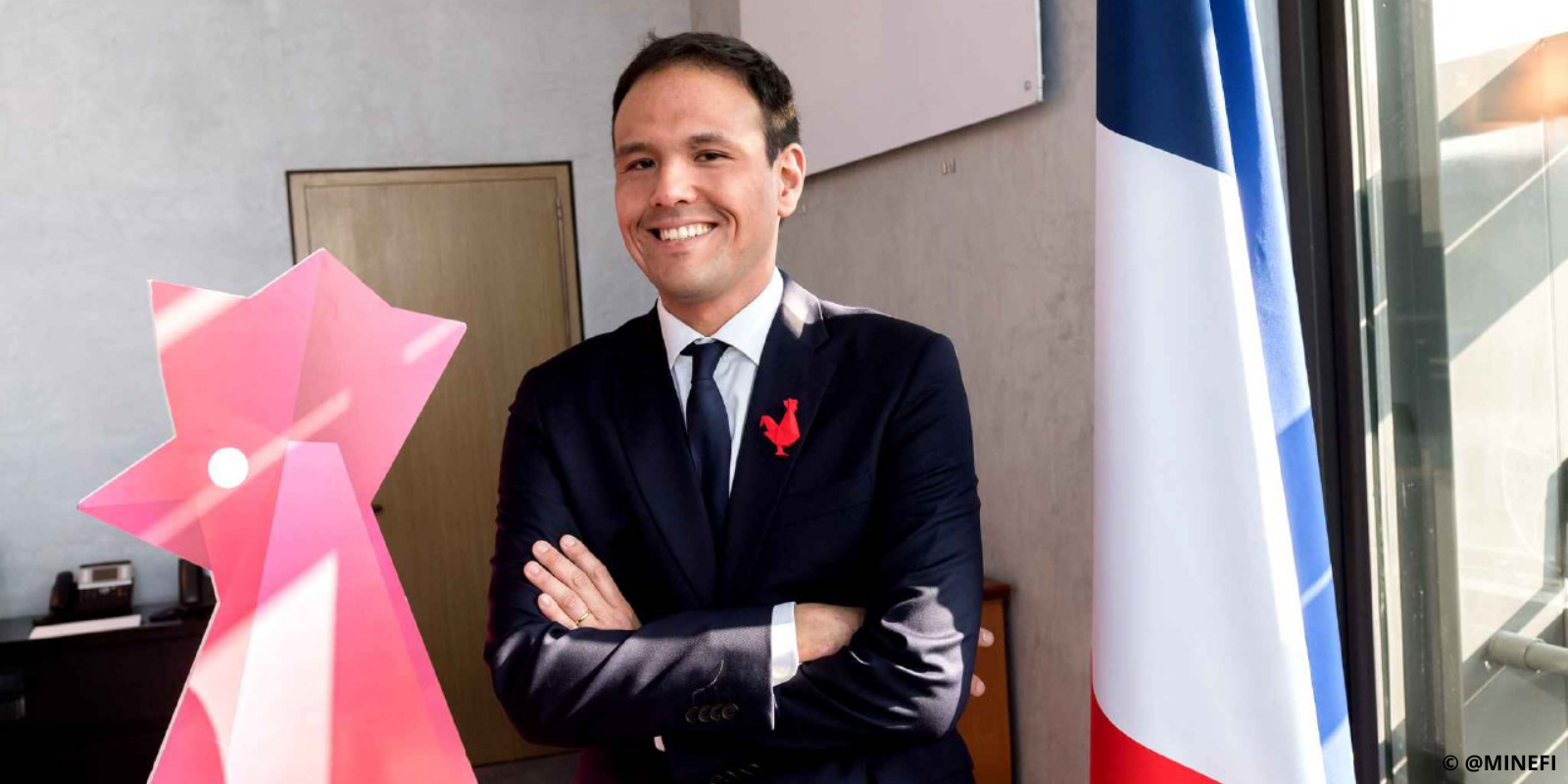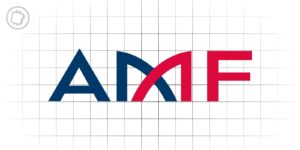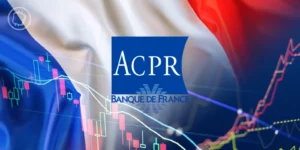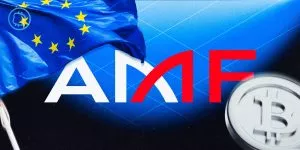Interview with Cédric O, Secretary of State for the French Digital Transition
In the context of the new regulations concerning the French crypto industry, we interviewed Cédric O, Secretary of State for Digital Transition and Electronic Communications. How does he perceive blockchain technology and its development in France?

La version française de cette interview est disponible ici.
Interview with Cédric O
- How do you perceive blockchain technology?
Our societies and our economies are subject to significant and sometimes contradictory trends. Firstly, by extremely intense technological competition, which sees the whole world engaged in a kind of "arms race", where the outcome will determine a large part of the prosperity but also the independence of the world's major economies, especially Europe. Blockchain technologies are part of these disruptive technologies, with considerable areas of applications, from financial matters to energy, from food processing to cultural and creative industries. This is why it is important for Bruno Le Maire and myself that France is at the forefront. But like any innovation, blockchain is a dialectic between innovation and regulation. Innovation is built and grows by breaking with existing frameworks. But in order to thrive, it needs trust, and therefore needs to be regulated. The blockchain is still in the chiaroscuro, and this dialectic can be observed everywhere in the world. The knife edge is even more complicated to find because the increasing complexity of the problems is a challenge on its own for the authorities. But I am optimistic.
- This Wednesday, December 9, 2020, France has made a new clampdown regarding crypto assets. How do you justify this toughening?
Crypto assets expose us to increasing risks of money laundering and terrorist financing (ML/TF). The dismantlement, last September, of a Daesh financing network combining crypto assets and electronic money transactions is a reminder of this reality. This is not a problem for France only: successive declarations by the Financial Action Task Force (FATF), the G7 and the G20 have also highlighted the increased risk of criminal misappropriation of crypto assets in the context of the health crisis and beyond. It is in this context that we have taken the ordinance of December 9, which was drawn up in consultation with the actors but also the national representative. The landing point strengthens controls, it's true, but I would like to remind you that this measure will be completed in a decree that relaxes the conditions for using remote identification devices. The Ministry's teams are in very regular contact with the ANSSI, the National Assembly and solution providers to ensure that [virtual asset service providers] VASPs will have services that meet their needs as early as this spring. We have therefore tried to find a balanced solution that meets both the security emergency and the operational concerns of the involved parties.wi
- Europe is not yet in harmony on these policies; do you understand that some startups are seeking to delocalize to countries that are less restrictive towards crypto assets? And how do you intend to convince them to stay?
First of all, I would like to remind that France is far from being the only European Union country to have gone beyond the fifth anti-money laundering directive when it comes to cryptos. Quite the opposite. Germany and Great Britain have also decided to subject to the ML/TF the entities that offer crypto-crypto services. Denmark is also in the process of adopting such a regulation.
It seems to me that we need to take a holistic approach of the problem. I am the first, sometimes, to protest against the strict rules governing the exercise of financial activities in France. But I can't help but notice that these rules are also what underpin the competitiveness of Paris, which is part of our country's strength and at the same time allows us to stay ahead of Frankfurt when it comes to welcoming activities from London. This credibility is an advantage when it comes to creating very large international firms.
In addition, I would like to underline that all European players who wish to target the French market will be required to register with the AMF under the same conditions and deadlines as players established in France. This provision of the Pacte law, recalled by the ordinance of December 9, aims to restore similar competitive conditions on the French market for all companies. There is a strong awareness between Member States and the European Commission on the need to implement everywhere the same rules and procedures applicable to crypto industry. The Minister of Economy, Finance and Recovery will make concrete suggestions to the European Commission to extend the monitoring system established in France.
I would also like to mention that France is one of the rare countries to have a clear legal, fiscal and accounting framework for all the participants in the ecosystem. Furthermore, when possible, we have opted to implement optional measures, such as a visa for ICOs or approval for digital asset service providers. Only those who wish to do so can take the necessary steps. I also want to note that the ecosystem knows how to find high-quality contacts within the administration and supervisors (AMF and ACPR) who can support them in their projects. Finally, France has taken the lead in regulating these activities, which means that it is now influential in European discussions. There is a collective interest in French public authorities and private operators being able to be the driving force behind European regulations.
- How can this legislation really prevent the funding of terrorism?
The ordinance of December 9 makes crypto-crypto-operators and trading platforms subject to the ML/TF rules. This makes these entities subject to stricter obligations in terms of customer identification, cooperation with Tracfin and the freezing of assets. Since last Wednesday [2020, 9th December], the crypto-crypto and trading platforms are therefore fully-fledged participants in the fight against money laundering and terrorist financing. In particular, they will help police and intelligence forces to identify suspicious transactions and trace their source. They will also prevent economic resources, such as cryptos, from being made available to terrorists who are subject to freezing measures. In addition, the ordinance introduces a ban on anonymous accounts, which is the counterpart of the obligation for all VASPs to identify their customers and the beneficial owners of those customers before entering into long-term business relationships.
The purpose of these measures is clear: to ensure that all cryptos transactions can be traced, but also to identify suspicious transactions and the persons benefiting from them, which will, in practice, prevent funds from being made available to terrorists or their networks. These measures will allow a more proactive and anticipatory action where the framework that has existed until now only allowed for intervention after the fact, once transactions have already been carried out.
- Is there any pressure from some businesses on blockchain technology that could explain this position?
The pressure we are confronted with, and which justifies these measures, is not a sectoral one. It is an immediate security pressure: the financing of terrorism is a threat against which we must act immediately and determinedly. Our country and our citizens are exposed to the risk of terrorism and would not understand if we did not act. It is our responsibility to do everything we can to protect them and to prevent every possible vulnerability.
- Some entrepreneurs wonder about France's desire to be a crypto-country, and are worried about the delay that this may cause in terms of technology, such as the Internet and the Minitel; do you understand these worries?
I completely understand these concerns but I sincerely believe that they are not justified. I don't believe that France is missing the train of blockchain technology. Indeed, the goal we share with the industry operators is simple: we want to keep and attract the future champions of the sector to France, and provide them a framework to help them grow and make France a dynamic, innovative and secure country in terms of blockchain technology. We have given ourselves the resources we need to achieve this: recognition of the technology as early as 2016, a framework for digital assets well before most countries and beyond the financial sphere alone, and a genuine national strategy for blockchain.
- How could we better support French companies in this sector so that they can develop in France and abroad?
The Government actively supports the development of innovation on its territory. The initiatives and support programs for innovative French companies, co-constructed with the ecosystem, are being strengthened and multiplied in the region, to reach as many entrepreneurs as possible.
At a nationwide level, the implementation since April 2019 of a dedicated strategy within the Ministry of the Economy, Finance and Recovery has made it possible to bring to the national level a favorable framework for the development of the blockchain and its applications, to coordinate actions at the national level and to raise the needs of the operators in the sector to the French and European levels.
The Investment for the Future program operated by Bpifrance helps companies in their financing whether through calls for projects or investment, but also to confront the crisis: 5.5 million euros have been mobilized for the blockchain sector during the first lockdown.
The support programs of the French Tech Mission, competitiveness hubs and technology transfer companies (SATT) on the territory are facilitating entrepreneurial approaches at the national level, and Business France [a French Government agency] has an ambitious policy of support for internationalization available for blockchain project initiators.
The public services assisting blockchain project operators are abundant and attentive, as illustrated by the success of the event of meetings between startups and public services on 9 and 10th December last, as part of the PBWS : More than 200 people were able to exchange with the 9 main strategic public entities for entrepreneurs, for example on topics such as financing (Bpifrance, Caisse des dépôts et consignations), legal support in all its forms (AMF, France Expérimentation, INPI), international development (Business France) and participation in structuring European projects (DINUM/EBSI).
- Do you think there is a need to develop training on these subjects and include certain notions in high school and university courses?
The creation of training programs is indeed a key element in enabling France to consolidate its expertise and to have a pool of talent at its disposal. French universities and schools (notably the University of Lille and the IMT Atlantique engineering school) are gradually developing Master's degree programs, dealing with this multidisciplinary subject from the angles of cryptography, engineering, but also law and economics. There are now 22 academic programs of all levels including blockchain in France, a figure that has been growing rapidly in recent years.
Today there are many opportunities for young people wishing to enter the world of research by working on the blockchain with about twenty French laboratories of high levels in this area. French research stands out in particular in the interoperability of distributed technologies as well as in the areas of software engineering and smart contracts. The establishment last January of the framework partnership research agreement between Inria and Nomadic Labs, the main research and development laboratory of the Tezos blockchain, is part of this approach and has already led to the launch of four research projects.
- France is one of the most represented and active countries in the development of this ecosystem (we have many Bitcoin nodes, many business creators, many developers and workers in decentralized finance). A non-negligible part of it has moved abroad. What can be done to make people want to come back and stay in France?
France's primary asset is the size and dynamism of its global digital ecosystem. In the blockchain, as in the digital world as a whole, it's all about critical mass and talent. We are in the process of achieving something exceptional in this regard. If you look at the amount of investment, we've gone from €1 billion invested in French startups in 2014 to over €5 billion in 2019, and probably even more in 2020. For the first time in history, we should finish ahead of Germany, which is number 1 in the European Union. This is primarily the result of startups, but also of the government's policies, from taxation to the French Tech Visa. We must continue and our goal is very clear: to build an international tech hub in France. This ecosystem, especially the talent pool, is something that the blockchain startups will not necessarily find elsewhere.
As we mentioned earlier, the wealth of support services is a key asset for companies based in France. Whether it is Bpifrance, with its investment and support policy in the face of the crisis; the AMF, with the delivery of its visa for blockchain companies; the Banque de France or the Caisse des Dépôts, with their productivity in the development of experiments in the active crypto sector, all of them contribute to the support of French blockchain companies and to their development.
In addition, the French blockchain ecosystem itself has enjoyed a real dynamism since 2017, as confirmed by the 2020 radar of French blockchain startups conducted by Wavestone. The legal and supply chain sectors, where the blockchain enables improved traceability of transactions, seem to be the most promising use cases, along with finance. These three sectors together account for nearly 43% of the French startups identified on the radar. The French ecosystem is thus gradually being structured and allows multiple synergies between entrepreneurs, developers, researchers, teachers, students and members of major French groups. To support this, the French government funds high-potential multidisciplinary projects and organizes events to bring these professionals together, such as the Paris Blockchain Week Summit (PBWS), where more than 250 entrepreneurs and students met with researchers from French institutes to discuss about their work.
- How do you perceive the introduction of the central bank digital euro? Do you think it should be based on a public blockchain?
Let's be clear, the introduction of the digital euro is not a certainty, but France has adopted a positive position at the European level on ongoing research. I also note that the recent European Central Bank report on the digital euro confirms our intuition and highlights its potential benefits in terms of monetary sovereignty, the efficiency of monetary policy, improved cross-border payments and banking inclusion.
However, this report also insists on several points of vigilance: the risk of disintermediation, the articulation with the ECB's monetary policy, potential financial destabilization (massive exposure to crises in the case of massive purchases of digital euros by non-residents) or the implications in terms of citizens' fundamental freedoms, data protection, resilience, cybersecurity and consumer protection.
Following the same approach, the possibility of hosting a digital euro on a blockchain deserves to be studied in depth, in order to mobilize the many advantages of this technology - in terms of security, speed, fluidity of transactions and lower costs - in the service of strengthening monetary sovereignty.
- How can we preserve our sovereignty when we want to cut out all intermediaries?
I would like to clear up any ambiguity: a digital public currency does not necessarily aim at cutting out the middlemen. I note, moreover, that the reflections in progress within the various central banks on digital public currencies of central banks all include backing from the private sector, along share lines that have yet to be specified.
- Should we be worried about private currencies like Diem (ex-Libra) and how can stablecoins be a threat to monetary sovereignty?
It seems to me necessary to insist on one fact: these projects are not strictly speaking "private currencies", because money remains an attribute of state sovereignty. To speak of "crypto assets for the purpose of payment" seems more accurate to me.
Moreover, it seems important to me to make the distinction between small-scale private projects - which do not inspire any real concern - and the emergence of a project like the Diem project (ex-Libra), of a completely different scale and destined for massive use, which would make it the first systemic stablecoin. This raises unprecedented issues, not only in terms of monetary sovereignty but of sovereignty itself.
Diem would clearly present a risk of infringing monetary sovereignty, since it would involve creating a money supply without integrating it into the aggregates, while substituting cash and bank deposits. This would entail a risk of growth in the money supply not controlled by the Eurosystem, coupled with a risk of disruption of the transmission channels of monetary policy.
But the risk to sovereignty is far from being limited to the monetary dimension alone. Diem also entails risks in terms of legal, digital and fiscal sovereignty.
Based on these considerations, France argues for a rigorous regulatory framework, at the European level, for crypto assets projects, which would allow maximum benefit to be drawn from innovation without undermining monetary sovereignty. Always with a view to protecting the rights of European consumers.
In this context, on September 24th, the European Commission published a proposal for a regulation on markets for crypto assets (hereafter "MiCA"), which includes the European Union's regulatory response to projects such as Diem. Negotiations have started with a target conclusion in 2021 and we will ensure that all major issues are well covered.
- Looking 5/10 years ahead, how do you imagine the evolution of this technology, and the place that France could have in it?
I think it's a constantly evolving technology that will permanently transform our daily lives over the next 5 to 10 years. This is already visible in financial services: French companies have already taken full advantage of the possibilities of using the blockchain to exchange financial securities, and this is set to become widespread. As far as payment is concerned, we are only at the beginning of the possible use cases, and it is obvious that savings in time, security and cost are to be expected in this area as well. This is also true in the service sector or in the manufacturing industry. Blockchain technology can, in my opinion, have an effect on all industries and can concern a wide range of production processes. This technology will gradually infuse our entire economic environment to make it more competitive and efficient.
Image from : Ministry of the Economy and Finance
With the contribution of Robin Berné et Clément Wardzala.
La Newsletter crypto n°1 🍞
Recevez un récapitulatif de l'actualité crypto chaque jour par mail 👌













